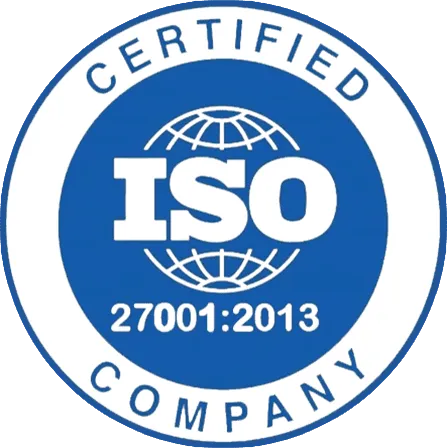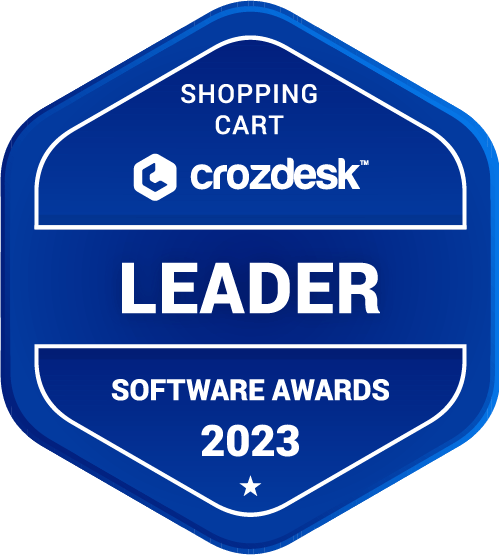What is Direct-to-Consumer (D2C) Model
The Direct-to-Consumer or D2C business model is a business setup in which brands manufacture and sell products directly to the customers. Unlike the B2C business model, Direct-to-Consumer businesses do not have intermediaries like wholesalers, distributors, retailers, etc. In this model, a brand directly controls various aspects of the customer experience, including product design, pricing, marketing, and distribution.
In D2C ecommerce, businesses sell their products to end customers through different channels like D2C website, apps, social commerce, etc.
As brands do not have any middleman in the direct-to-consumer model, they pass the middleman's margin to end customers and are able to sell products at lower costs.
The D2C business model enables businesses to connect directly with customers, provide them better shopping experience, and subsequently increase customer loyalty. A D2C brand can also tie up with retail shops to provide a better user experience to the customers.
What are the advantages of the Direct-to-Consumer (D2C) Model
The Direct-to-Consumer (D2C) business model offers several advantages to brands and manufacturers that choose to sell their products directly to consumers.
Here are some of the key advantages:
- Control and Ownership: Brands have complete control over their products, branding, and sales strategies. This allows brands to offer personalized deals for customers.
- Customer Relationship: Brands can directly sell to customers and build a direct relationship with their buyers. D2C brands can easily gather data and insights that help them better understand consumer preferences and behavior.
- Greater Margins: With no middlemen in the distribution process, Direct-to-Consumer brands often enjoy higher profit margins per sale compared to traditional retail models.
- Pricing Control: Since there are no intermediaries, brands can set their own pricing strategies. Due to reduced overhead costs brands can offer better discounts to convert buyers.
- Data and Analytics: Brands can collect valuable customer data and analytics, enabling them to make informed decisions about product development, marketing strategies, and customer engagement.
- Flexibility and Adaptability: A D2C brand can quickly adapt to market trends and consumer demands which allows brands to introduce new products or adjust existing ones more rapidly.
- Leverage e-commerce and Technology: The D2C business model enables brands to leverage e-commerce platforms and digital marketing strategies to significantly enhance brand engagement, expand reach, and optimize the overall shopping experience for customers.
- Personalization: D2C brands can leverage customer data to offer personalized recommendations, promotions, and shopping experiences, enhancing customer satisfaction and loyalty.
To fully harness the benefits of the Direct-to-Consumer (D2C) Model , brands need a robust e-commerce platform that empowers them with full-featured D2C e-commerce solutions to manage sales, data, and customer relationships.
StoreHippo is a leading e-commerce platform that provides advanced e-commerce features, customizable storefronts, and integrated analytics. StoreHippo enables brands to maximize their D2C advantages and create exceptional online shopping experiences for their customers.
What are some successful examples of the Direct-to-Consumer (D2C) Model
By eliminating the middleman and selling their products directly to customers, many traditional and digital-native brands have witnessed tremendous business growth by adopting the D2C business model.
Here are some examples of companies that follow the Direct-to-Consumer (D2C) business model:
Nike
Nike is a global leader in sportswear and athletic footwear. It embraced the direct-to-consumer model and started selling its products directly from its official D2C website and branded retail stores. Nike's D2C approach ensures authenticity, customization, and a seamless shopping experience that directly connects the brand with its customers.
Mamaearth
Mamaearth is a leading Indian brand in the beauty and personal care sector. It offers a wide range of natural and organic skincare and haircare products for both mothers and babies.
Following the direct-to-consumer model, Mamaearth bypasses intermediaries and makes its eco-friendly products accessible to a wide audience through its D2C website and online marketplaces. This approach has strengthened the brand-consumer relationship and ensured astronomical growth for the brand.
Bewakoof
Bewakoof is an innovative fashion and lifestyle brand that offers trendy clothing and accessories. By selling directly to consumers via their online store (App and website) Bewkoof has successfully harnessed the direct-to-consumer strategy in the Indian market.
Bata India (Bata)
Bata India is a household name in Indian footwear. It has embraced the direct-to-consumer paradigm to bring its extensive collection of footwear to the consumer's doorstep. By leveraging both its D2C website and physical retail stores, Bata offers customers a diverse range of footwear options.
Plum
Plum is a leading Indian beauty and personal care brand. It uses the Direct-to-Consumer (D2C) Model , to offer products on its brand website. Plum’s D2C approach suits people who care about reliable and environmentally friendly beauty choices.
All the above brands have leveraged the D2C model to connect directly with their buyers. By making purchasing easy, personalizing products, and establishing strong bonds with buyers these and many other brands have been able to reap rich dividends from the D2C approach.
What are the points to consider while implementing the Direct-to-Consumer (D2C) Model
The Direct-to-Consumer (D2C) Model requires careful consideration of various factors to ensure its feasibility and success.
Here are some important points to consider:
- Choose the right business strategies: Understand the target audiences and segment them effectively with diverse business strategies to connect, engage, and convert customers.
- Product Suitability: Not all products are well-suited for the Direct-to-Consumer (D2C) Model . Brands should consider the customer and market demands when choosing niche products.
- Value Proposition: Define a unique value proposition to drive customer interest and loyalty by standing out from the competition.
- Go Omnichannel: Providing a seamless buying experience across multiple channels makes a D2C brand future-proof.
- Choose an advanced e-commerce solution: For a successful Direct-to-Consumer (D2C) Model implementation choose a robust e-commerce platform that can handle end-to-end requirements.
- Fulfillment and Logistics: During the D2C transition, brands should consider developing a reliable fulfillment strategy and partnerships with fulfillment centers if needed.
- Customer Support: Direct-to-consumer brands should be responsive to inquiries and address issues promptly.through multiple communication channels.
- Returns and Refunds: Brands should address customer concerns in a fair and efficient manner for a successful D2C transition.
- Feedback and Iteration: D2C brands must be open to customer feedback and iterate based on their suggestions.
Choosing the D2C business model is a strategic decision that requires thorough research, planning, and execution. By carefully considering these points and choosing a robust D2C website builder like StoreHippo, brands can set a strong foundation for a successful D2C venture. Leverage StoreHippo's 300+ cutting-edge features and 30+ logistic providers for successful D2C transition.
Why choose StoreHippo to start your own Direct-to-Consumer business
For successful D2C transition businesses require the right technology partner that provides the most flexible and agile e-commerce solutions. StoreHippo is an advanced e-commerce platform built on MACH( Microservices, API-first, Cloud-native SaaS, Headless Commerce) architecture. With 300+ cutting-edge features, StoreHippo supports a diverse range of business models including D2C, B2C, B2B, B2B2C, hybrid, etc.
StoreHippo is a PCI DSS-compliant e-commerce platform that offers high-end technological solutions to build feature-rich D2C websites and apps. StoreHippos's customized e-commerce solutions and future-ready e-commerce solutions easily meet the growing market demands.
StoreHippo enables businesses to successfully transition to the D2C ecommerce model. Brands can also integrate with the best-in-breed third-party integrations. Set up your brand for unrestrained growth with StoreHippo’s D2C ecommerce solutions that can be customized quickly and easily to meet unique business requirements.
Ready for the D2C transition of your business? Start your D2C business journey with StoreHippo 14-day free trial.




















